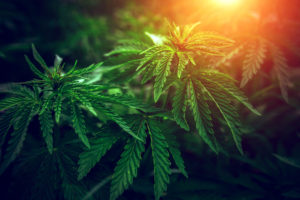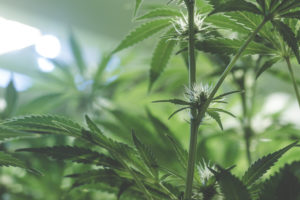CBD, also known as cannabidiol is a compound that gained increased attention in the past few years. After all, the impact of CBDs therapeutic benefits and its non-psychoactive nature has attracted people worldwide. California was the first to dramatically change the face of the cannabis industry, while other states followed not far behind. The result is, CBD and other components representing a microcosm of the cannabis community. However, the biggest problem is that cannabis still continues to struggle with its identity, in particular, CBD.
CBD, one of the major compounds of the cannabis plant is not new to the American population. Even though people often think CBDs non-psychoactive properties are an excuse to get stoned. Some have always supported the merger of cannabis and medicine. The biggest example would be Charlotte Figi’s story. A girl who suffered from a severe form of epilepsy and managed the condition with the help of CBD.
In CBDs defense, epilepsy isn’t the only condition it can treat. If you look at research papers and studies conducted in the past few years, you will notice that CBD can not only treat severe epilepsy but also combat anxiety, pain, inflammation, and a myriad range of ailments.
Contrary to what people think about cannabis and what research suggests, “not all forms of CBD are Legal.” And what do I mean by that? Well, it’s simple. CBD may be legal in some forms but it is neither regulated by the federal authorities nor the FDA or the DEA. In fact, if you take a look at the recent interim rule issued by the DEA, you will understand or perhaps get more confused about CBDs’ legality. This brings us to the main question, Is CBD legal or not”? Here’s what we know. Read on to find out.
What Is the Current Status of Legalization?
According to the Farm Bill, which became law in 2018, CBD derived from hemp with less than or equal to 0.3% THC is legal federally. However, little do people understand there are different layers to this law. For instance, the 2014 Farm Bill, narrowed hemp cultivation down to different categories. First, it is legal to grow hemp for research and academic purposes. Second, it is also legal to cultivate hemp as long as the state laws permit and the departments of agriculture and research sectors are involved.
There are certainly many manufacturers and producers who source their hemp from growers that follow the guidelines stated under the Farm Bill. For example, producers who want to produce large amounts of CBD products and sell them in the market. Ideally, these people will look for research hemp as source and agricultural farms that specialize in producing hemp with 0.3% THC. But given the fact that CBD products are so wide-spread and created in abundance, the producers are likely to source them from elsewhere. Not only this but state laws on hemp also vary across the nation. Take Colorado as an example, it legalized the recreational use of marijuana in 2012. Soon after legalization, Colorado became the first US state to start the certified hemp seed program. In contrast, if you look at Massachusetts, you cannot grow hemp unless you have a state license.
Meanwhile, the DEA has issued a new interim rule that supports the Farm Bill but still continues to call CBD illegal. And to make things worse the law enforcement suggests that anybody violating the federal law stands guilty. So, not meeting the 0.3% standard could be a major cause of the trouble.
The FDA Does Not Regulate CBD Products
It’s been more than two years since the Farm Bill became law. There are so many people who will tell you that I have started using CBD for my medical problem and guess what CBD is legal. Yet, among the significant percentage of people who use CBD, very few know that CBD is not regulated by the Food and Drug Administration (FDA).
This may come as a surprise to people who do not know. But I am sure they will also wonder that CBD is legal so why is the FDA reluctant about declaring it a safe dietary supplement? Well, the answer is not that simple. You see, the FDA does not have bad intentions or personal motive to not do so. They are keen on regulating CBD products. The problem arises because CBD is still in infancy. This means that it is a new compound that requires a lot of in-depth research. In fact, the FDA itself is researching CBD and its therapeutic properties.
Besides this, we also have to consider other factors. For instance, CBD is new and that’s because it is labeled as a New Dietary Ingredient. On top of it, the review process is also very slow. The review process includes research, studies, lab test, and data submission to the FDA. Potentially, only after many rounds of evaluation and positive feedback, the FDA will think about taking the next major step.
Unfortunately, the process is so slow that until now the FDA has managed to sample test only a few CBD products. When compared to the companies operating in the CBD business, the process is slower than it should be. While all this is happening, there is another major factor that you need to take into account.
What’s More
First and foremost, the agency or companies producing hemp do not disclose the sources. So, the regulatory bodies have to undergo a thorough procedure because they are unaware of one major necessary detail. Second, if you look at the reports published regarding mislabeling, you will understand why the FDA has been issuing notices to several companies. The CBD products are mislabeled most of the time. The test results are opposite to what the label reads. So, the FDA ends up with a major problem – a lack of significant data and discrepancies in the whole structure.
CBD Falls Under the New Drug Investigation Category
As mentioned before CBD is new and that’s because it is still listed as a new
compound. Not only this but CBD is also categorized as an Investigational New Drug (IND). In other words, the FDA is still researching the product. And we have to wait until the FDA comes up with concrete research and has enough data. The only exception, in this case, is Epidolex. This drug has been approved by the FDA as a pharmaceutical drug. Most cancer patients are administered with Epdolex in order to alleviate the symptoms caused by chemotherapy.
In addition to this, if you look at companies who produce, manufacture, and make CBD, you will find a lot of them marketing CBD as a dietary supplement. I think they have managed to take advantage of the loose ends in the cannabis laws. All in all, the FDA cannot overturn the IND preclusion and it has never done the same in the past. These challenges are right in front of us, the CBD industry, and the FDA.
So, What’s In-Store for CBD?
All these discrepancies in the law and loose ends make sense. However, ignoring the urge to highlight CBD as a therapeutic agent calls for more trouble. Take those companies as an example who proliferate at the expense of cannabis consumers. They also mislead a lot of people and damage the reputation of the cannabis community fighting diligently to legalize cannabis federally.
Moreover, by now we all know that only CBD derived from hemp is legal and anything derived from marijuana is still illegal. So, how will the CBD industry come out of this perplexing situation? It’s not easy to come up with one concrete solution. Even if the FDA bans CBD from the dietary supplement category, the CBD industry will continue to function as before. Things will remain as they are today because the FDA still doesn’t regulate this substance. As far as the DEA is concerned, the interim rule states that any product with more than 0.3% THC is illegal.
This means they can issue a notice against companies or majorly producers who produce CBD products. You see, during the process of production, the producers are most likely to produce Delta-9-THC, a higher form of THC. This means that the producers fall under the legal radar. Although this is not legally binding immediately because the Farm Bill has legalized hemp-derived CBD.
Final Thoughts
If the regulatory body issues notice against the production of hemp, the authorities and the company will go through a series of debates and clauses in the Farm Bill. not only this but these regulatory authorities have to go through the judiciary, the US Department of Justice, and trust me this process will go on for years. So, the fate of CBD companies will rest on legal nuances being discussed back and forth in the court. Interestingly, when it comes to CBD consumption, to be on the safer side you can get a 420 card and use that to avail of high-quality marijuana-derived CBD products. For CBD derived from hemp, you still do not need a 420 card, especially for people who reside in a state that legalized both recreational and medical cannabis.



